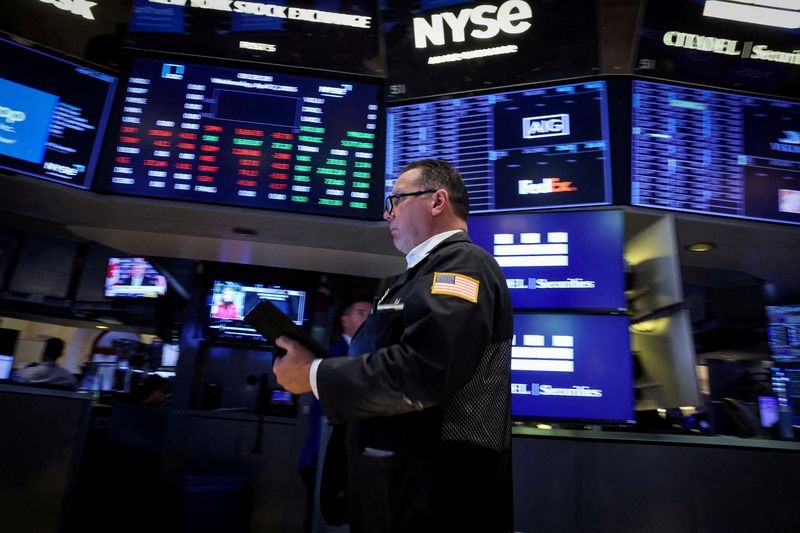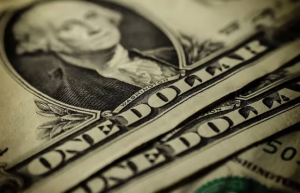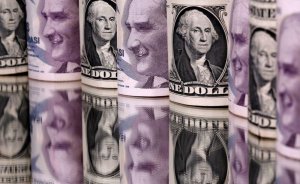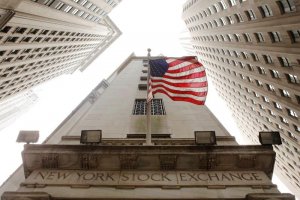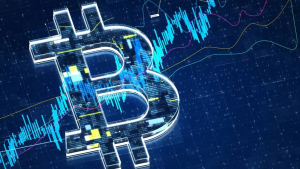U.S. stock futures tick down on Wednesday, with President Donald Trump’s tariff plans and updated U.S. rules on artificial intelligence chip exports to China in focus. Nvidia (NASDAQ:NVDA) shares slump in after-hours trading following the U.S. Commerce Department’s decision to limit exports of its crucial H20 AI chip to the world’s second-largest economy. Elsewhere, traders will be eyeing a slew of corporate results and retail sales data, while Federal Reserve Chair Jerome Powell is due to deliver closely-watched remarks.
1. Futures lower
Stock futures on Wall Street pointed lower, as investors gauged the trajectory of Trump’s tariff policies and new U.S. rules limiting the export of high-end AI chips to China.
By 03:40 ET (07:40 GMT), the Dow futures contract had slipped by 282 points, or 0.7%, S&P 500 futures had dropped by 71 points, or 1.3%, and Nasdaq 100 futures had declined by 382 points, or 2.0%.
On Tuesday, the main averages ended in the red as an initial boost from relatively solid bank earnings lost steam steam due in part to persistent concerns over the White House’s trade negotiations.
Bank of America and Citigroup (NYSE:C) both reported strong equities trading revenue, although they noted that the economic outlook remained uncertain as businesses tried to assess the path ahead for Trump’s levies.
Remarks from Trump on Monday helped bolster hopes that he could roll out more concessions on his punishing duties, particularly for the auto industry. But the optimism was tempered by media reports suggesting that U.S. told the European Union that some tariffs on the bloc would remain in place despite recent negotiations between the two sides.
2. Nvidia slips on new export limits to China
Shares in Nvidia sank in premarket U.S. trading after the semiconductor giant said it would be hit by $5.5 billion in charges following a Commerce Department decision to limit exports of its H20 AI chip to its key Chinese market.
The H20 is the main AI chip Nvidia is permitted to sell in China under restrictions originally imposed by the Biden administration, as the U.S. sought to close off Beijing’s access to cutting-edge advancements in AI tech.
A spokesperson for the Commerce Department said late on Tuesday that it was also issuing updated licensing requirements for exports of processors like the H20, Nvidia-peer AMD (NASDAQ:AMD)’s MI308 and similar products, Reuters reported. The spokesperson said the move is in line with a directive from Trump to "safeguard our national and economic security."
AMD shares also slumped in extended hours dealmaking, as well as rivals Broadcom (NASDAQ:AVGO), Super Micro Computer (NASDAQ:SMCI) and Intel Corporation (NASDAQ:INTC). U.S.-listed shares of major Nvidia supplier TSMC also dropped.
3. Earnings, retail sales data ahead
Investors will have the chance to sift through a fresh batch of company results, as the first-quarter earnings season clouded over by the potential impact of Trump’s tariffs gathers pace.
Medical device group Abbott Laboratories (NYSE:ABT), real estate investment trust Prologis (NYSE:PLD), and lender U.S. Bancorp (BVMF:USBC34) are due to headline Wednesday’s reports before the opening bell.
In Europe, ASML (AS:ASML) -- the world’s biggest supplier of computer chip-making equipment -- warned that the levies were raising the level of murkiness around its outlook this year and in 2026. Shares in the Dutch group fell by more than 5% in early European trading.
On the economic calendar, retail sales figures for March could provide a glimpse into the state of the U.S. consumer prior to Trump’s announcement of his sweeping reciprocal tariffs -- and subsequent partial delay -- this month.
"March retail sales numbers should be very strong as consumers anecdotally went out and made major purchases ahead of the imposition of tariffs," analysts at ING led by Michiel Tukker said in a note to clients.
4. Powell remarks
Federal Reserve Chair Jerome Powell is set to deliver remarks on Wednesday, with markets keen to hear how his assessment of the U.S. economy has evolved following a raft of developments around Trump’s tariffs.
Powell’s speech at the Economic Club of Chicago, scheduled for 13:30 ET, will come after Trump postponed his sweeping levies on many countries last week in the wake of deep ructions in stock and bond markets.
Earlier this month, Powell said there was a lot "waiting and seeing going on," including by the Fed. He added that this tactic seemed "like the right thing to do at a time of elevated uncertainty." The statement was interpreted as an indication that the central bank may not rush to slash interest rates should the tariffs spark a broader economic crisis -- an action known by many investors as a "Fed put."
Fed Governor Christopher Waller said on Monday that he expects the duties will have a "transitory" effect on prices, although he flagged that they still represented a major shock to the U.S. economy.

